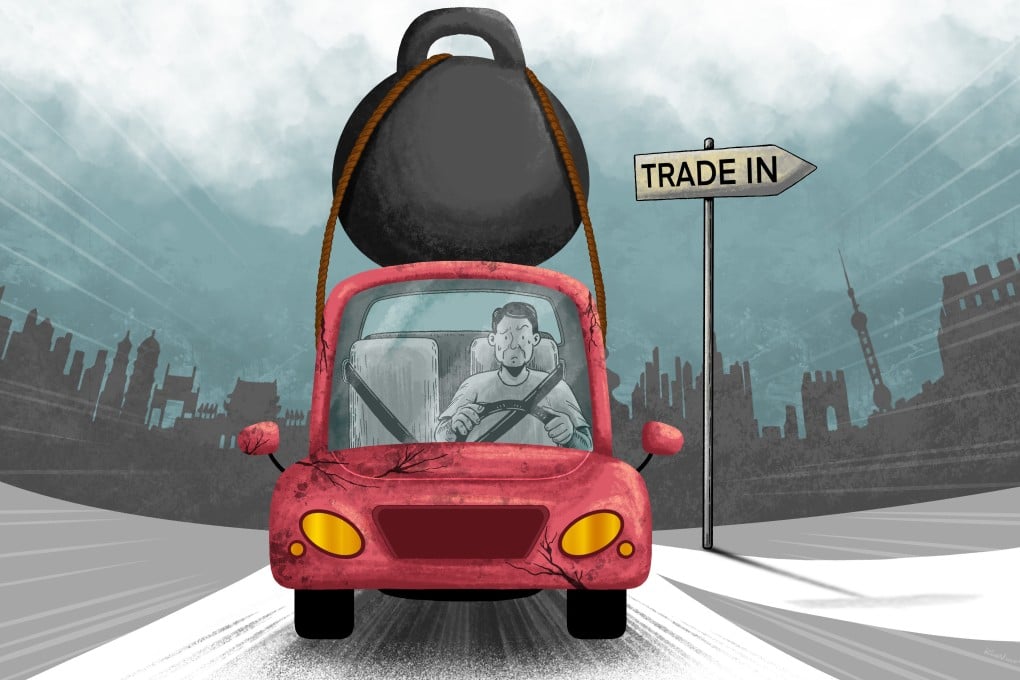Advertisement
China’s trade-in for homes scheme misses mark as middle class prefers to save, not spend
- While Chinese trade-in subsidies for cars and appliances are boosting the economy, similar property schemes are slow to get off the ground
Reading Time:6 minutes
Why you can trust SCMP
2

He Huifengin Guangdong
When Crystal Zhang walked into a showroom to look at the latest electric vehicles (EV) last month, she was told by the sales agents that she would be eligible for an 8,000 yuan (US$1,104) subsidy if she sold her old car first.
It was a tempting offer. New-energy vehicles are of keen interest to Zhang and a topic she and her friends love to talk about. So without hesitation, she decided to sell her petrol-fuelled Mercedes-Benz that she had driven for seven years and spend 280,000 yuan on a Nio, a leading Chinese EV brand.
“It’s cooler to own the latest model of a new-energy vehicle than an imported petrol car,” said Zhang, who is the owner of a high-end restaurant in the southern city of Guangzhou. “Also, it will save a lot of money on fuel and maintenance.”
But while the consumption subsidy was certainly a trigger for Zhang’s car purchase, she has no desire to use the trade-in for homes programme, saying she prefers selling properties for cash.
“My restaurant has been losing money in recent years, and I need cash flow, not new debt. Swapping my old car for a new fancy electric car was appealing for the experience of new technology and design, but forget about new debt for a new property.”
Zhang was one of the first people in the southern megacity to participate in the trade-in scheme – a scheme which Beijing has high hopes will drive the country’s economic growth, as China struggles with a continuing property slump, slow private investment and falling exports amid external headwinds.
Nationwide, more than 40,000 applications have been registered for the trade-in subsidy since it was rolled out in late April, with many of those using it to switch to new-energy cars. January to May auto sales rose 11.1 per cent from a year earlier to 10.61 million units, while new-energy auto sales jumped 32.3 per cent to 2.94 million.
Advertisement